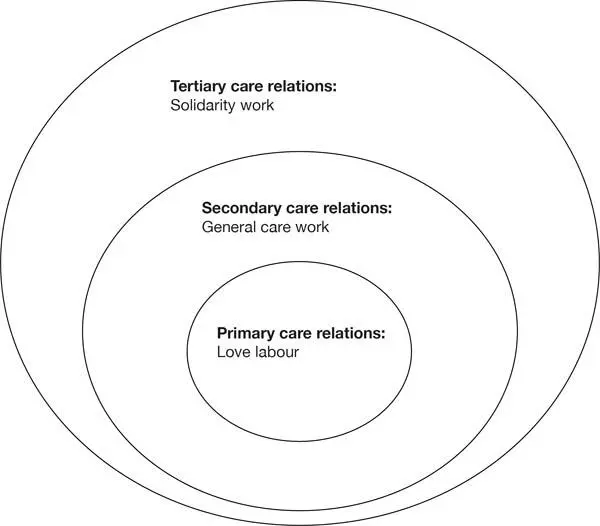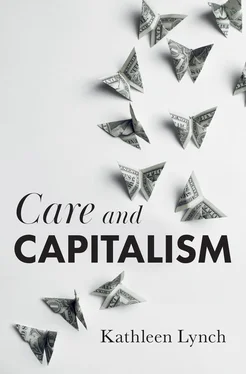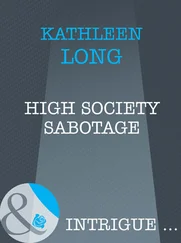1 ...7 8 9 11 12 13 ...21 Because doing loving, caring and showing solidarity all require time, effort and energy, they involve work. When this work is not recognized and rewarded, those who do most caring experience a contributive injustice similar to those identified by Gomberg (2008) and Sayer (2009). Caring people, 4in all their different manifestations, are not recognized for their contribution to the good of society. As women are the default carers globally, intellectual and political silences about the primacy of nurturing work in producing and maintaining life make them vulnerable to exploitation (Oxfam 2020).
Affective relations are not social derivatives subordinate to economic, political or cultural relations in social life. Affective relations produce people in their humanness, as sociable beings in-and-of themselves (Oksala 2016: 297) These relations operate as a relatively autonomous field of social practice within and through which inequalities and exploitations can and do occur, just as they occur in the economic, political or cultural sphere (Baker, Lynch, Cantillon and Walsh 2004; Lynch, Baker and Lyons 2009). They are productive, materialist human relations that constitute people mentally, emotionally, physically and socially, both positively and negatively. When relations are liberatory and non-alienating (that is, not simply instrumental and driven by exchange value) they are positively productive of our humanness (Dussel and Martinez 2003). The absence of liberatory, non-alienating relations produces neglect, harm and loss and is keenly felt at institutional, professional and personal levels (Mol 2008; Feeley 2009; Lynch, Grummell and Devine 2012; McDonald, Lolich, Timonen and Warters 2019).
The material impact of affective relations of love, care and solidarity is one of the major reasons they are of such significance for the politics and sociology of social justice and social change. Without the nurturing resources invested in them, not only as children but also as adults, people would be unable to participate on equal terms with others in social life (Gilbert 2010). Because love in particular ‘has significant, and non-instrumental, non-substitutable and widely recognised value’ (Gheaus 2017: 740), those who are unloved and uncared for , including in public institutions such as schools or residential care homes, lack a sense of care and love security that is required in order to learn (Commission to Inquire into Child Abuse 2009; Feeley 2014). In contrast, public investment in solidarity expressed through good welfare, health and education produces social goods such as trust and better physical and mental health (Wilkinson and Pickett 2009, 2018).
Bonds of intimacy, friendship and/or kinship and belonging are frequently what bring meaning, warmth and joy to life, while sustaining intimate relationships, friendships and trusted community relations all contribute to human well-being (Layard 2005; Rodríguez-Pose and von Berlepsch 2014). Being deprived of the capacity to develop nurturing affective relations, or of the experience of engaging in them when one has the capacity, is therefore a serious human deprivation and an affective injustice.
Because knowing how to love, care and show solidarity, and having the resources to act on this knowing, does not happen by accident, creating an affectively egalitarian society means creating social systems and institutions where people are resourced and enabled to receive as much love, care and solidarity as is humanly possible. While it is not feasible to force people to care for others, as there is a voluntary dimension to personal care relationships, nevertheless it is possible to create the political, economic, cultural and legal conditions that either enable or disable care capacities within individuals, institutions and organizations. Affective equality is therefore both an interpersonal and a structural matter; it is about maximizing the capacity of peoples and societal institutions to create, maintain and resource the affective relations that produce love, care and solidarity.
At the intimate level, it is about protecting and enabling primary care relations to ensure they are as nurturing as possible, including enabling and resourcing the love labouring work that non-substitutable affective relations involve (Lynch 2007; Cantillon and Lynch 2017). Affective equality also involves ensuring that people have the capacity to create nurturing caring relations outside of family, friends and intimate others. Nurturing needs to be resourced and enabled in secondary sites of caring, including childcare centres, hospitals, care homes for older/vulnerable adults, and other social institutions where the work involved has a care dimension, including education, health care and welfare particularly. Finally, affective equality is about promoting and sustaining care for strangers in the wider political domains, in one’s local community, and at regional, national and international levels.
Figure 1below gives a visual representation of the three major lifeworlds where love, care and solidarity operate. First, there is the world of primary, intimate relations where there is strong attachment, deep engagement and intensity. These love relations involve high interdependency and are characterized by strong attachments, intimacy and responsibility over time. While they vary in form cross-culturally, they arise from inherited or contractual dependencies or interdependencies and are people’s primary care relations. The prototypical relationship in this circle is that between parents and children. Even if little love labour is invested in this intimate world, or if there is abuse or neglect, these relationships retain a high level of personal and social significance.

Figure 1 Affective relations: love, care and solidarity
Source: Adapted from Lynch (2007)
Secondary care relations are lower-order interdependency relations. While they involve care responsibilities and attachments, they do not carry the same depth of moral obligation in terms of meeting dependency needs, especially long-term dependency needs. There is a degree of choice and contingency about secondary care relations that does not apply to primary relations. Secondary relations characterize outer circles of relatives, friends, neighbours and work colleagues where there are lower-order affective engagements in terms of time, responsibility and commitment.
Tertiary care relations are solidarity relations that generally involve unknown others and do not involve intimacy. They are the political expression of care relations (Boltanski and Porter 2012). Sometimes solidarity relations are chosen, such as when individuals or groups work collectively for the well-being of others whose welfare is only partially or not immediately related to their own, or solidarity can be imposed through laws or moral prescriptions that are collectively binding. Solidarity is both a set of values and a set of public practices. It connotes the work involved in creating and maintaining local communities and neighbourhoods, on the one hand, and the advocacy work in formal politics and civil society for social justice at national and global levels, on the other. It finds its expression in people’s willingness to support vulnerable others within their own country or to support people in other countries who are denied basic rights and livelihoods necessary to live a life of dignity and without unnecessary suffering. The levels of solidarity in each society are reflected in everything from the vibrancy of its community activities to the taxes people are willing to pay in order to fund and support vulnerable members of their own and other societies. It is where the moral, the affective and the political systems overlap in public life. (For a fuller discussion see Lynch and Kalaitzake 2018.)
Читать дальше













